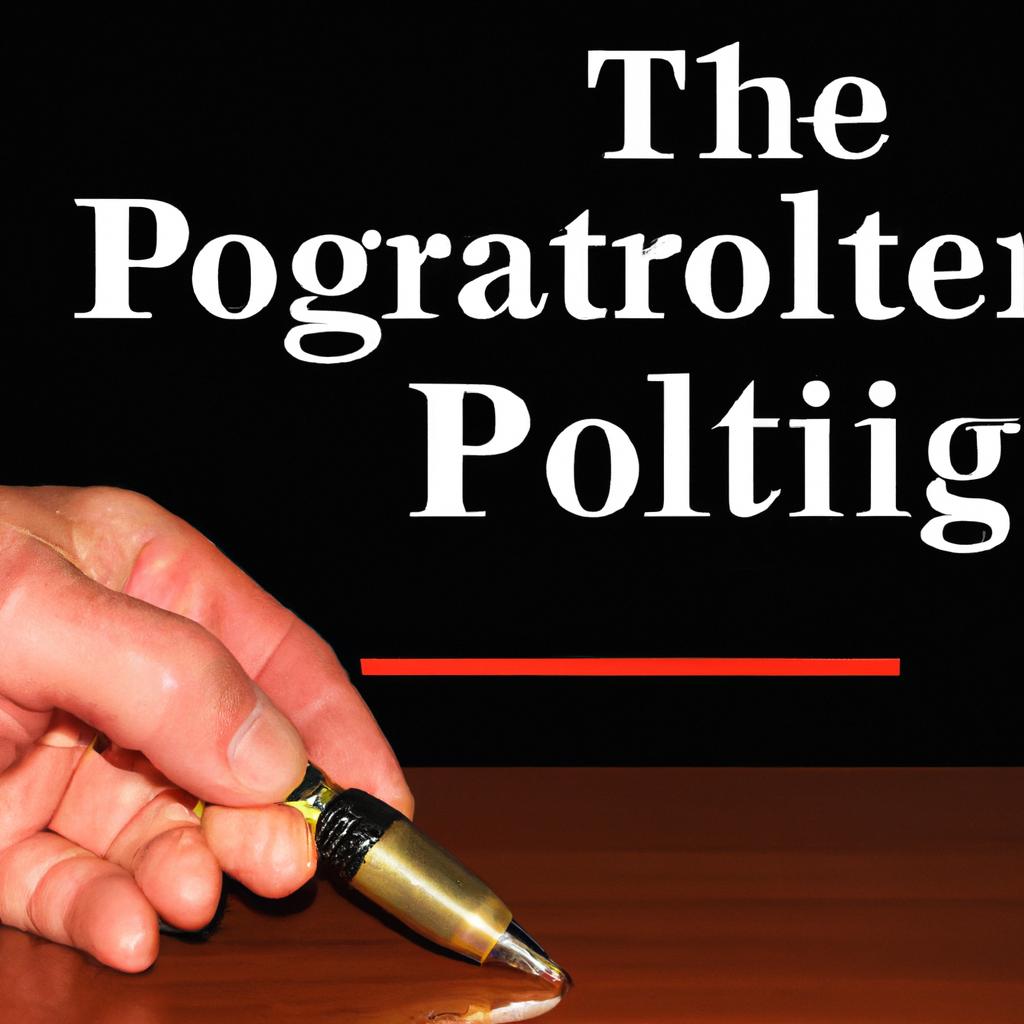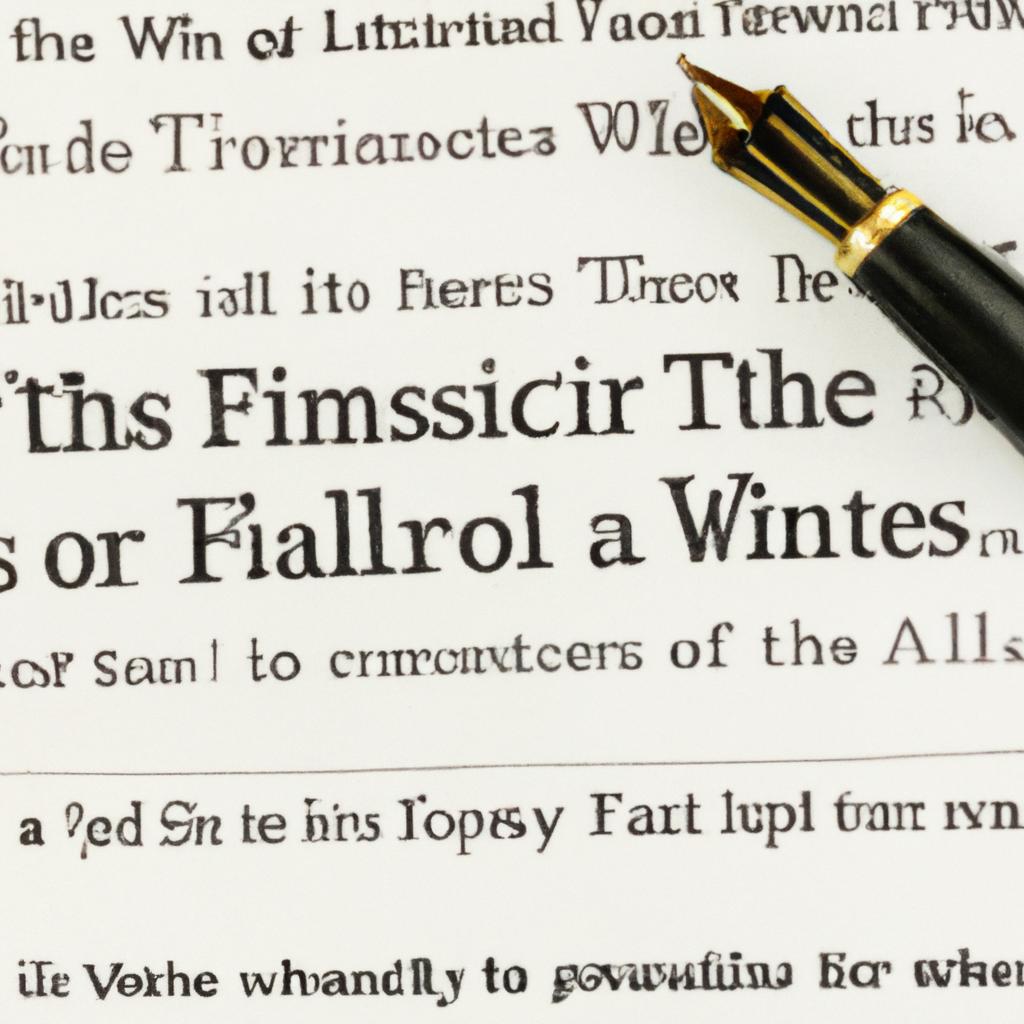When a loved one passes away, their Last Will and Testament is a crucial document that ensures their final wishes are carried out. However, the process of executing a will can often be complex and confusing, particularly when it comes to the probate process. In this article, we will explore the question: when do wills go to probate? As experienced attorneys specializing in estates and probate law at Morgan Legal Group in New York City, we will provide insight into the probate process and the factors that determine when a will must be probated.
Understanding the Probate Process for Wills in New York
Probate is the legal process through which a deceased person’s assets are distributed to their heirs and beneficiaries according to the terms of their will. In New York, the probate process for wills typically begins after the individual has passed away. Here is a brief overview of when wills go to probate in New York:
**Factors that determine when a will goes to probate:**
– The death of the testator
– Validity of the will
– Appointment of an executor
– Filing the will with the Surrogate’s Court
– Notifying beneficiaries and creditors
– Resolving any disputes or challenges to the will

Determining the Trigger Point for Probate Proceedings
When it comes to , it is essential to understand the specific requirements set forth in the state’s laws. In general, probate is necessary when an individual passes away and leaves behind assets that need to be distributed to heirs or beneficiaries. The following are common scenarios that may require probate:
- No valid will: If the deceased did not have a will, probate is typically required to ensure the orderly distribution of assets according to state laws.
- Contested will: If there is a dispute regarding the validity of the will or its provisions, probate may be necessary to resolve the issue through court proceedings.
- Large estate: For estates with significant assets, probate may be necessary to oversee the distribution process and prevent any potential disputes among beneficiaries.

Factors Influencing the Timing of Will Probate
can vary depending on various circumstances surrounding the deceased’s estate. One crucial factor is the complexity of the estate itself. Estates with multiple assets, beneficiaries, and debts may take longer to probate compared to simpler estates. Additionally, if there are disputes or challenges to the will, this can significantly delay the probate process.
Another factor that may influence the timing of will probate is the availability of the court and the probate process in the jurisdiction where the estate is being probated. Some courts may have backlogs of cases, which can lead to delays in processing wills for probate. Other factors such as the efficiency of the executor and the need for additional documentation or information can also impact the timing of will probate. It is essential to work with an experienced probate attorney to navigate these factors and ensure a smooth and timely probate process.
| Factors | Impact |
|---|---|
| Complexity of the estate | May result in longer probate process |
| Court availability | Backlogs can lead to delays |
| Efficiency of the executor | Can impact the timing of probate |

Key Considerations for Efficient Probate of Wills in New York
Efficient probate of wills in New York requires careful consideration of various key factors. One important aspect to keep in mind is the timeline for when wills go to probate. It is essential to understand that the probate process typically begins after the death of the testator. Once the testator passes away, the will is submitted to the Surrogate’s Court in the county where the deceased lived at the time of their death.
During the probate process, the court will examine the validity of the will, oversee the distribution of assets, and resolve any disputes that may arise among beneficiaries. To ensure a smooth and efficient probate process, it is crucial to work with an experienced probate attorney who can guide you through the legal requirements and complexities of probating a will in New York.
Q&A
Q: What is probate?
A: Probate is the legal process of proving and executing a will after someone has passed away.
Q: When does a will go to probate?
A: A will typically goes to probate after the person who created the will (the testator) has died.
Q: Is probate necessary for all wills?
A: Not necessarily. Whether or not a will needs to go through probate depends on various factors, such as the value of the estate and the laws of the state where the deceased person lived.
Q: What happens during the probate process?
A: During probate, the court will verify the authenticity of the will, appoint an executor to handle the distribution of assets, pay any outstanding debts and taxes, and distribute the remaining assets to the beneficiaries.
Q: How long does probate take?
A: The duration of probate can vary depending on the complexity of the estate, any disputes that arise among beneficiaries, and the efficiency of the court system. In general, probate can take anywhere from several months to a few years to complete.
Q: Are there ways to avoid probate?
A: Yes, there are ways to avoid probate, such as creating a living trust, naming beneficiaries on financial accounts and assets, or owning property jointly with rights of survivorship.
Q: What happens if there is no will?
A: If someone passes away without a will, their estate will be distributed according to the intestacy laws of the state where they lived. In this case, the estate will still need to go through probate.
Concluding Remarks
In conclusion, understanding when wills go to probate is essential for anyone navigating the legal process of estate planning. By knowing the key factors that trigger probate, individuals can better prepare for the distribution of their assets and ensure their final wishes are carried out smoothly. Whether it be through the passing of a loved one or drafting your own will, having a comprehensive grasp of probate procedures can provide peace of mind and clarity during a potentially challenging time. Remember, seeking professional guidance from a legal expert is always advisable to ensure a seamless probate process. Stay informed, stay prepared, and let your legacy be handled with care.
 When Do Wills Go to Probate: Understanding the Probate Process
When Do Wills Go to Probate: Understanding the Probate Process
Losing a loved one is a difficult and emotional time, and dealing with the legalities and bureaucracy of their estate can add to the stress. One of the key components of estate planning is having a last will and testament in place. A will is a legal document that outlines the distribution of a person’s assets and belongings after their death. However, the process of distributing assets and carrying out the wishes of the deceased can be complex and may require court intervention. This is where probate comes in. In this article, we will delve into the details of when wills go to probate, how the probate process works, and what you need to know to navigate it smoothly.
Understanding Probate
Probate is the legal process of recognizing and distributing the assets of a deceased person to their beneficiaries. It is supervised by the court to ensure that the deceased’s wishes, as outlined in their will, are carried out correctly. In simpler terms, probate is the process of settling an estate and transferring ownership of assets from the deceased person to the beneficiaries.
When Do Wills Go to Probate?
The probate process typically starts after a person dies and leaves behind a will. However, not all wills have to go through probate. In general, a will goes to probate when:
– The deceased person owned property solely in their name, and there are assets that need to be distributed to beneficiaries.
– The will was notarized or witnessed according to state laws.
– The court has jurisdiction over the estate of the deceased person.
– There is no trust or other estate planning document in place.
So, if a person solely owns a property, bank account, or other assets in their name and they pass away, the probate process will likely need to be initiated.
How Does Probate Work?
Probate begins when the executor of the will, the person designated to manage and distribute the estate, files the will with the probate court. The court will then issue a document called “letters testamentary,” giving the executor the authority to act on behalf of the deceased person’s estate.
The executor’s responsibilities include notifying creditors and beneficiaries of the deceased person’s passing and the probate case. They will also gather and inventory all assets and pay applicable debts and taxes before distributing assets to beneficiaries according to the will. The entire process can take anywhere from six months to a few years, depending on the complexity of the estate and any challenges that arise.
Benefits and Practical Tips
While the probate process may seem daunting, there are ways to make it smoother for both the executor and beneficiaries. First and foremost, creating a comprehensive and well-drafted will can significantly reduce the time and expenses associated with probate. Consulting an experienced attorney and regularly reviewing and updating your will can also help avoid any potential complications.
In some cases, it may be beneficial to have certain assets placed in a trust to avoid the probate process altogether. A trust is a legal entity that holds assets on behalf of a beneficiary and can be useful in avoiding probate.
Practical tips for surviving loved ones during the probate process include keeping detailed records and communication to avoid any misunderstandings or disputes. Additionally, seeking advice from a financial planner or accountant can be helpful in handling any tax implications during probate.
Case Studies
To better understand the probate process, let us look at a couple of case studies:
Case 1:
Samantha’s father passed away, and he left behind a will, leaving her all his assets. She was named the executor of the will and had to initiate the probate process. However, the property Samantha’s father left behind had liens and judgments against it. In this case, the probate process took more than two years to resolve as the executor had to pay off the outstanding debts before assets could be distributed to beneficiaries.
Case 2:
Gabriel’s father also passed away, and he left a will designating Gabriel and his sister as beneficiaries. However, Gabriel and his sister were not on good terms, and his sister challenged the will, claiming it was invalid. This resulted in a lengthy and expensive court battle. In the end, the court ruled in favor of Gabriel, but the process took a toll on their once-close relationship.
First-Hand Experience
Dealing with the loss of a loved one is never easy, and the additional responsibilities of handling their estate can be overwhelming. As the executor of my grandmother’s will, I found the probate process to be time-consuming and complex. However, having a well-drafted will and seeking professional help streamlined the process and made it easier to navigate.
Conclusion
The probate process may seem daunting, but it ensures that the wishes of the deceased person are followed and their assets are distributed to their intended beneficiaries. Knowing when a will goes to probate, understanding how the process works, and seeking professional advice can make the experience smoother for all parties involved. A well-planned estate can also lessen the burden on loved ones and ensure that your final wishes are fulfilled.

